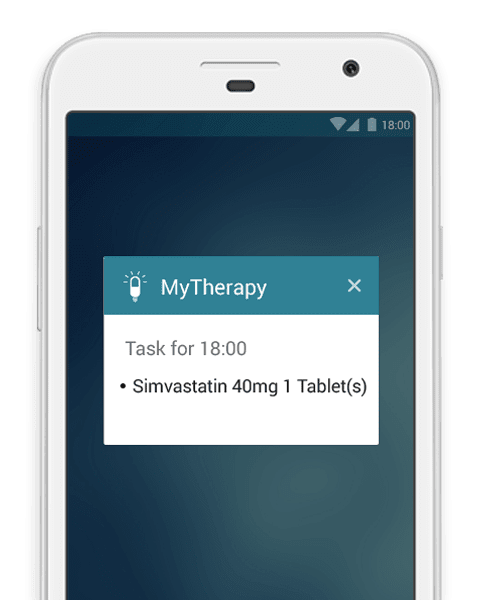Huntington’s disease is a disorder estimated to affect nearly 100,000 Americans every year, with around 10% of those cases being juvenile Huntington’s disease. Huntington’s disease is caused by a gene fault in your DNA. If symptoms of the disease are developed before the age of 21, it is considered juvenile Huntington’s disease or JHD.
How Juvenile Huntington’s Disease is Diagnosed:
Juvenile Huntington’s disease is inherited genetically. Those with a family history of the disease should be mindful of symptoms to ensure a prompt diagnosis. However, it is possible to develop the disease without a known family history. To ensure the best possible treatment an early diagnosis is critical, some symptoms to watch out for are:
- Involuntary movements*
- Rigid Muscles*
- Abnormal eye movements
- Impaired balance
- Difficulty speaking or swallowing
- Difficulty focusing*
- Lack of impulse control
- Slowness in processing thoughts
- Insomnia
- Fatigue
*These symptoms typically appear first and are the most common early indicators of Juvenile Huntington’s Disease
If any number of these symptoms begin to appear, especially the most common early indicators of the disease, its important to see a doctor. A prompt and thorough diagnosis is important to manage symptoms better.
JHD is diagnosed based on an evaluation of family history, symptoms, and genetic testing. Neurological symptoms typically will need to be evaluated over a few appointments before a conclusion can be drawn. When diagnosing JHD, there is no one symptom or group of symptoms that must be present. However, a typical diagnosis will involve several symptoms from the above list.
How Juvenile Huntington’s Disease is Treated:
Unfortunately, there is no cure for juvenile Huntington’s disease, but there is medication capable of slowing the spread and progression of the disease. These medications can relieve symptoms such as depression, muscle stiffness, seizures, and depression. However, there are no available medications known to increase cognitive function in those with JHD. For this reason, treatment is centered around managing symptoms and increasing quality of life and can involve any combination of medication, therapy, and lifestyle changes These are the main treatment options:
Psychotherapy:
Some form of talk therapy is a common treatment for those with JHD as it can help deal with behavioral problems. Psychotherapists may work with patients to develop coping strategist, manage expectations for disease progression, and facilitate quality communication between patients and their loved ones.
Speech Therapy:
Due to the speech impairments that can come with JHD, it can be helpful to work with a speech therapist. Speech therapy can help patients gain better control over the muscles used for speaking, eating, and swallowing. This will in turn oftentimes help patients with their ability to socialize and live a more normal life through effective communication skills.
Physical Therapy:
By working with a physical therapist, patients may be able to enhance their strength and coordination and manage the muscle-related symptoms of JHD better. While it is not possible to stop the disease from progressing it is possible to maintain maximum mobility for longer through therapy. Along with exercises, physical therapists may be able to help patients with their posture to help lessen the severity of symptoms. In some cases, as the disease progresses it may become necessary to use a wheelchair or walker, physical therapists can help patients with proper usage of these devices.
Occupational Therapy:
Occupational therapists may be able to provide patients and family members with instructions on how to use assistive devices to help make everyday tasks easier to perform for the patient. Devices may include handrails at home, assistive tools for bathing, and specially adapted eating and drinking utensils.
Medication:
There are two main uses for medications when treating juvenile Huntington’s disease, treating movement disorders, and treating psychiatric disorders.
Medications for movement disorders:
For movement disorders, patients may be prescribed specific drugs created to restrict involuntary movement. In some cases, antipsychotic drugs may be used as they have a side effect of suppressing movements and may have fewer negative side effects than drugs specifically designed to suppress the movement.
Medications for psychiatric disorders:
Since many psychiatric disorders can accompany JHD, it is common for patients to be prescribed some form of medication to manage it. Antidepressants are used often not only because they may reduce feelings of depression, but they can help patients manage obsessive-compulsive disorder (OCD), another symptom of JHD. Antipsychotic drugs are used to manage the psychiatric side of symptoms as well as the physical side, due to their ability to suppress violent outbursts, agitation, and psychosis. In some cases, mood-stabilizing drugs may also be used to help manage the highs and lows associated with JHD.
Lifestyle:
Due to the nature of JHD and the focus placed on improving quality of life, maintaining as healthy of a lifestyle as possible is important. It’s key that patients, caregivers, and family members work together to develop and maintain the best habits possible. Some steps that can be taken are:
- Using a shared calendar to maintain a routine
- Giving patients tasks within their abilities
- Creating a calm, simple, and structured environment
- Providing as many social opportunities as practically possible
- Consulting with school staff to develop an appropriate individual education plan
It may also be helpful to seek out nonprofits dedicated to helping those with the JHD such as The Huntington’s Disease Society of America. These groups may be able to provide caregiver education, referrals to outside services, support groups, and meal assistance.
Juvenile Huntington’s Disease Prognosis:
Juvenile Huntington’s disease progresses quickly once symptoms have presented themselves. The length of time that someone may survive once diagnosed can vary but typically patients with JHD live somewhere between 10 to 15 years after symptoms have appeared.
For this reason, it is important to begin considering the care that will be necessary during the late stages of the disease as early as possible. Some important points to cover may be:
- Care facilities – Oftentimes treatment in the late stages of the disease will require full-time nursing care.
- Hospice care – Hospice services can provide end of life care that helps patients to approach death with as little discomfort as possible. They also can provide support to family members during the end stages of a patient’s life.
Here are some other posts we think you might be interested in:
“Yes, I’m Living with Depression. This Is How You Can Help Me.”



